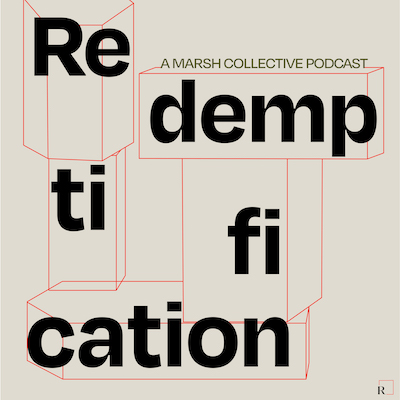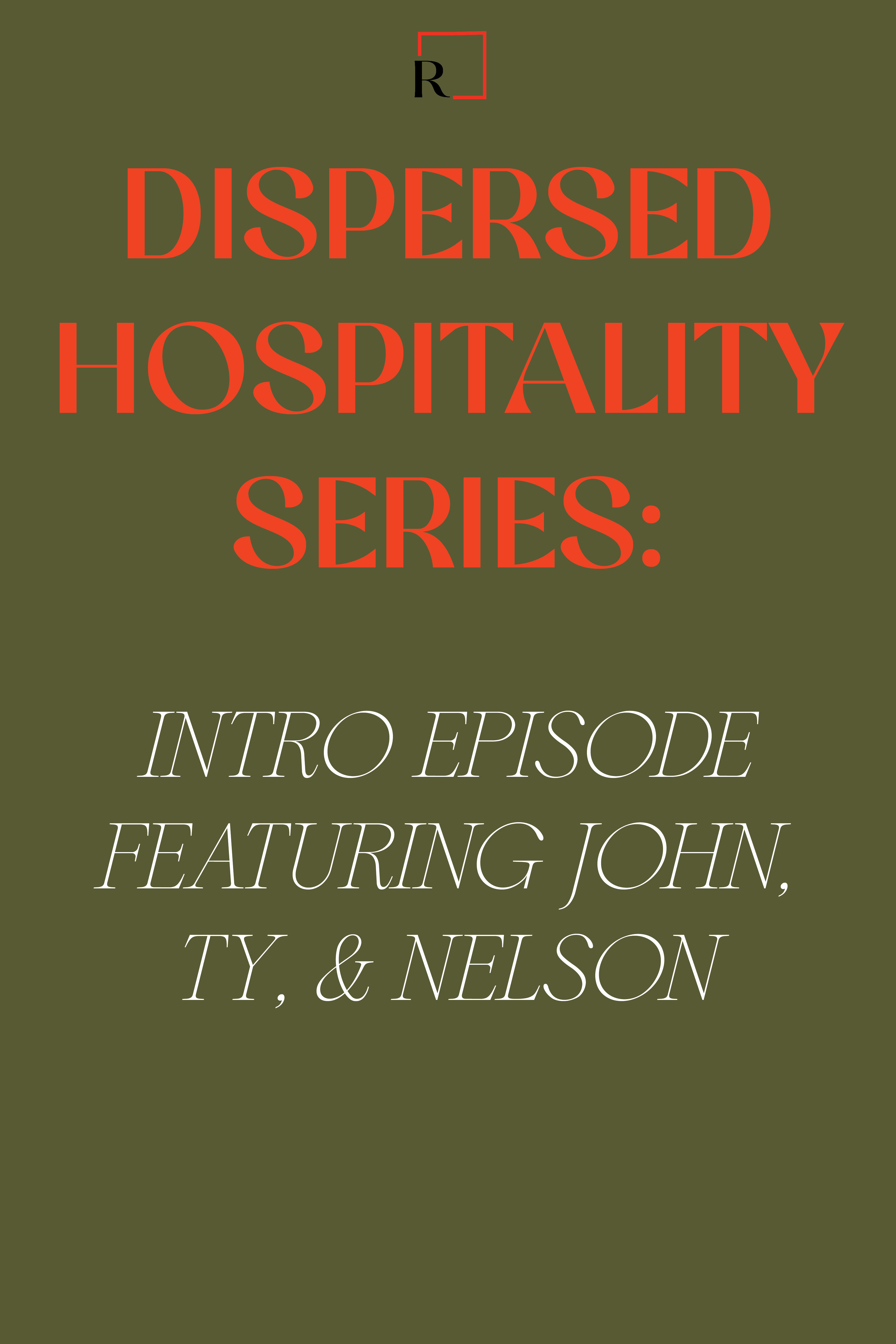Being a Christian in Business vs. Being a Christian Business with special guests Mike Gibson and Randy Wilson
Ty sits down with Randy Wilson, and Mike Gibson of Creature Construction. Together they discuss the challenges of faith and purpose in business, and wrestle the question of whether we should have christian businesses, or express our christianity through business. Never ones to shy from a challenge, our intrepid trio inspects the ways we can express a redemptive view of business in one of the most challenging business spheres of our time: construction. Tune in for a conversation that finds the intersection of purpose and profits in the most unlikely of places.
Insights & Inspirations
- Creature creates value through vertical integration of ‘modular components’, particularly in healthcare construction.
- Mike Gibson (06:25): you have to understand that from a traditional general contracting standpoint where you’re just coordinating all the work on a job site and making a small fee on the coordination of all the work, we are actually doing the work. And so we’re actually much larger than it would seem like we should be
- Ty Maloney (08:13): a lot of times when we think of general contractor construction management architect, there’s kind of this separation, there’s this management, and then there’s true builders. And what I want everybody on the call to understand is that you guys are actually leading trades and responsible for trades
- Randy Wilson (09:43): me and my wife, we, a little bit backstory, we met in Uganda, lived in Uganda for three years, moved back to the states we were living in. Austin decided to move to Birmingham and in that process she got really sick. So because I was working internationally, I couldn’t find a co-working space. I was open at 1:00 AM And so I was sharing that with Mike one day and he was like, Hey, our office, you could come in anytime of the day, anytime of the night, you name it, here’s a key fob, you can have unlimited coffee, unlimited snacks.
And so for the first probably four years of our relationship, I was a little bit of an undercover nonprofit executive director who I often tell people I worked at Creature for four years, I’ve worked for Creature for the last two years. - Randy Wilson (11:49): we recognize this sub and the sub GC relationship wasn’t always the best one. And so we wanted to address that and try to figure out how we could navigate that and create a better situation. So my role today is working with the leadership team to think through how we do that well internally, so what’s the internal impact? But then also externally. So as we do our work, we’re going to be given a platform to have an impact. How are we choosing to use that platform? And that looks like working with nonprofits, community leaders, sitting in with different churches and just different connections that come from the day-to-day business operations.
- Ty Maloney (13:18):it’s more cultural than it really is anything else. Because we create division of trades, we, there’s almost like there’s a lack of cultural service. One common thing is who owns the condensate drain in a project? Is it the plumber or the mechanical guy?
- Randy Wilson (14:44): my role and my title is not it not an excuse for the leadership team to be jerks. It is a resource for our team to be loved and cared for.
- Randy Wilson (17:05): a chaplain is this one thing, a chief spiritual officer is very different and has a lot more ownership in the company.
- Ty Maloney (17:24): I think it’s an important distinction to say, Hey is Creature itself is not a Christian company. I mean a company, well your words were, it doesn’t have a soul, but you as a leader, Mike, happen to have a strong faith and a strong faith to a leader.
- Mike Gibson (19:10): as I think about Creature, I think that what I’m called to do here at Creature is to be who I am. And I’ve been called to be a Christian.
And so I think that companies like Creature that are not on the nose about being a Christian company are important because I think that it’s important to be in the world, not of the world - Mike Gibson (21:52): the hope is throughout the day that my reactions and strategies are being filtered through my faith. And so some days that’s more successful than others. And I think one of the keys to being a Christian leader is to not own your mistakes. In those moments, you’re going to screw up and you should not spend a whole lot of time defending that
- Mike Gibson (22:38): as believers sometimes we can give off this air if we have it all together, everything’s perfect, everything’s good. And I think certainly as a leader where you’re working closely with people, they can see the truth. And as Christians, the truth is that we are broken and we are sinners, and salvation is through our great savior. And if we are not vulnerable about our brokenness, everything else we say about our faith isn’t really true and won’t have the impact that it could have.
- Ty Maloney (23:29): Mike, one of the things I honor about you shown to me very early is that you lead with a, and it’s rare in this industry because it always feels like a fight
- Ty Maloney (24:17): the elephant in the room is this secular marketplace, almost this, I don’t know, separation of church and state, separation of church and market or how do these things, compliance, all those things, all those questions come up.
- Randy Wilson (25:21): think HR is seen in the traditional sense to care for people. And so they do a lot of stuff to try and care for people. And I would say what I bring into the table is a desire to first know the people we’re trying to care for and then to be bold with what, so I’m going to zoom out a little bit. The same rules that people are that exist that cause a lot of people fear are the same rules that we as believers can follow to give us a lot of freedom. So if we treat everyone the same, we can do whatever our faith convicts us for the most part, as long as it’s within certain rationales. But you can pray with people, you can pray with your team, you can lead prayer times, you can.
- Randy Wilson (26:56): my role is really thinking through how do we care for our people that are the people that God’s given us?
- Randy Wilson (27:58): ultimately it is creating a safe space for people to have hard conversations. If from a non-spiritual lens that is what I do.
- Ty Maloney (29:30): it’s easy to see faith as a lens we see through, but not as something that we truly want to integrate in.
- Ty Maloney (31:20): want to have full integration. But in the midst of all the things of business and conflict, it’s really, it’s difficult. So my questions, is faith a lens? We’re just seeing it through, or is integration really possible?
- Randy Wilson (32:42): to call business. Anything other than hard is probably incorrect.
- Randy Wilson (32:52): I worked for three different types of industries that are for profit. The construction industry is hands down the most difficult industry to be in
- Randy Wilson (34:24): one of the questions that we’ll ask companies is what is your unique spiritual impact focus?
- Randy Wilson (40:53): I am a doer that I go and do things so that I might have things and then be considered well done
- Randy Wilson (41:23): the reality is, when God looks at us through the blood of Christ, we are a being verb. We are children of God, we can be his child full stop right there.
- Randy Wilson (45:25): very similar to how our company would do a business plan is how we would do a spiritual impact plan. And so we asked that question of how do you feel like God has uniquely designed you, uniquely called you to expand his kingdom through your company?
- Randy Wilson (47:26): we ask the question of, okay, well what does success look like and how do you define it? That’s where the KPIs start to come in is we’re trying to figure out what do we want, what do we want those relationships to look like? How do we want to interact with them?
- Randy Wilson (49:47): when things get hard, is the leadership team going to be open to having those conversations or are they going to be noses down in the weeds and not willing to step out? Who’s going to be a part of that?
- Randy Wilson (50:38): As a faith driven individual, I’m looking for opportunities to share with those people in a way that’s relevant to their life. So I’m not coming in with doing bad evangelism, just blasting it out all the time. But really God called us to love people, love God, love people. And so my hope is just to love people well, and then to gather people together and opportunities to dive in deeper
- Randy Wilson (51:05): for about three or four months last year we did, every week we had breakfast where we could just ask hard questions about the business, about life, whatever it was
- Randy Wilson (52:27): people really like the squishy thing cause it gives them a reason not to do it. And we would just say, if it’s squishy, then make it less squishy press into what we look all throughout scripture. He makes it very, God makes it very clear that he gives assignments to folks
- Ty Maloney (55:18): it’s easy to have a lazy theology. Like you said, we could call it squishy or we can say things like, well, God works in mysterious ways or whatever
- Ty Maloney (55:57): As entrepreneurs that are faith driven, we think that the environments we’re in and these things that we’re not, that stuff would happen if there was a moment, there was something supposed to happen that would happen without us. God works in mysterious ways, and that’s not true.
Information & Links
Closing Questions
What have you read that we should read?
- Randy Wilson
- Living Life Backwards by David Gibson
- Mike Gibson
- Becoming a King by Morgan Snyder
Who do you know that we should know?
- Randy Wilson
- Work for Life organization
- Mike Gibson
- Patrick Lencioni – about
- Working Genius assessment
Where have you been that we should go?
- Randy Wilson
- Rwenzori Glaciers in Uganda – about
- and your child’s next baseball practice




